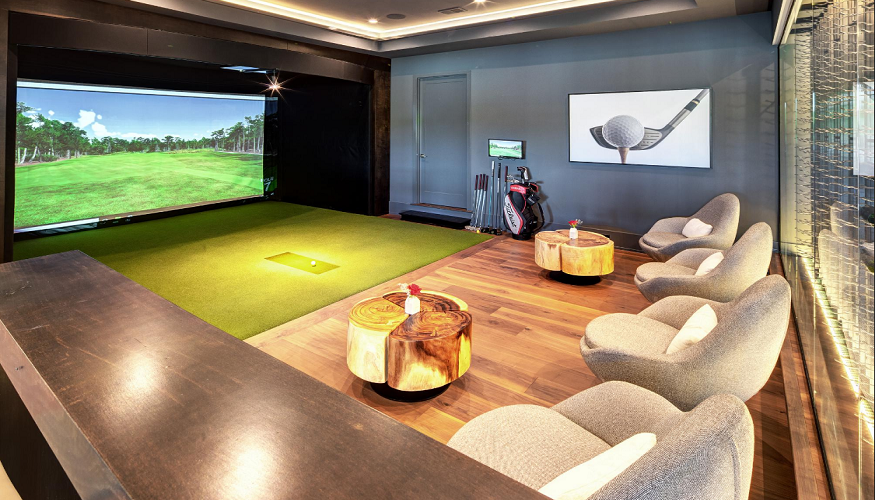General News Blog
My WordPress Blog
My WordPress Blog

Professional home golf simulators not only attract golf fans by offering the possibility to practice and play golf at the same time but also provide users with a comfortable and convenient atmosphere. These simulators commonly consist of a hitting mat, a display screen or a projector with the virtual golf course, as well as sensors or cameras to detect where the ball lands.
It would help to consider several factors before choosing a golf simulators for home since that will guarantee that you find the right product that meets your needs. Below, we will discuss the space requirements and technology features of shopping for your dream home so that you can make an intelligent decision. Here are some key components and considerations when looking for a home golf simulator:
Space requirements
First, assess the square footage you can allocate for the garden placement. Golf simulators come in many sizes, so you have to make sure you have enough space to freely swing your club safely and clear of any obstructions. Measure the area in which you intend to put the simulator to determine if its size is the right match.
Generally, golf simulators have two main types: screen-projector and projector-based simulators. The main difference revolves around a screen-based simulator equipped with a large one where the course is shown. In contrast, a projector-based simulator usually will have an image projected onto a wall or a screen. Analyze type selection as the prime factor defining harmony with your environment and comfort in everyday chores.
Enter the golf courses you can find in the simulator. However, the simulators differ significantly in terms of the courses they provide, from those that offer Pebble Beach and St. Andrews courses to those that offer only a few. Ensure you select a simulator that allows you to play courses you would have instead participated in.
One of the most critical points of consideration is the correctness and level of realism of the simulator. Of course, look for features like intelligent ball tracking technology, accurate flight characteristics and a detailed course environment. The degree to which you find the simulator user-friendly will depend on how realistic it is. If it is more real to you, the more fun and productive it will be for you to use it.
The simulator’s clarity, accuracy and safety are heavily dependent on the ball-tracking technology. Some simulators use infrared sensors; however, others use high-speed cameras or radar systems. These sensors help determine the direction and speed of a flying ball. Study the variability of ball-tracking technology, highlighting the benefits and shortcomings of each type.
In this section, find out what features you may use in the simulator, like shot analysis, swing metrics, and various practice modes. Simulation high technology can have a multiplayer online play option, a custom game mode featured, and even virtual coaching usage at a distance. Aim for a program with flexible software that maintains your level and the training goals.
Choose the ease of bringing the simulator home: you don’t need to engineer a complicated installer. Some models are delivered ready to go, while others require a certain amount of labor to put them together. Seek modules with simple instructions and those needing a minimal number of setup procedures.
Verify the device series that the simulator supports and the possibility of accessory use. Some simulators could be an open door to more wired technology, such as golf launch monitors, swing analyzers, and virtual reality. This means you will have a completely new experience with your simulator. Make certain that the simulator can run with any existing component that you may own.
Lay down the budget for the home golf simulator accordingly and prioritize the best deals among different brands and models. Remember that high-cost copies of simulators usually include more advanced functions and a durable surface. It is also essential to discuss the simulator’s longevity in terms of its life cycle, service opportunities, and software updates.
Finally, research the manufacturer’s reputation and its services, such as customer support. Try to choose a simulator that comes with a warranty to avoid potential problems that can damage the simulator. Check the reviews and testimonials of other clients/users to establish the trustworthiness and level of satisfaction customers are achieving from the product.
Lastly, the decision to buy a home golf simulator must be considered thoroughly, considering several criteria, such as the space you need, the type of simulator, accuracy, the software options it includes, and price. Instead of quickly going through the selection without looking into the features, select a simulator that fits well for you and helps you get a step further in your game, sitting in an armchair at home.